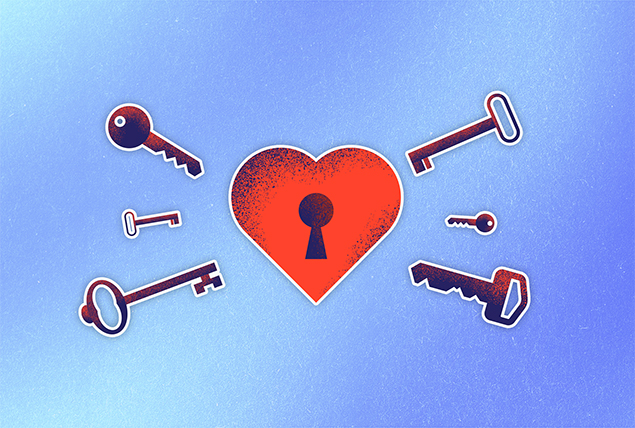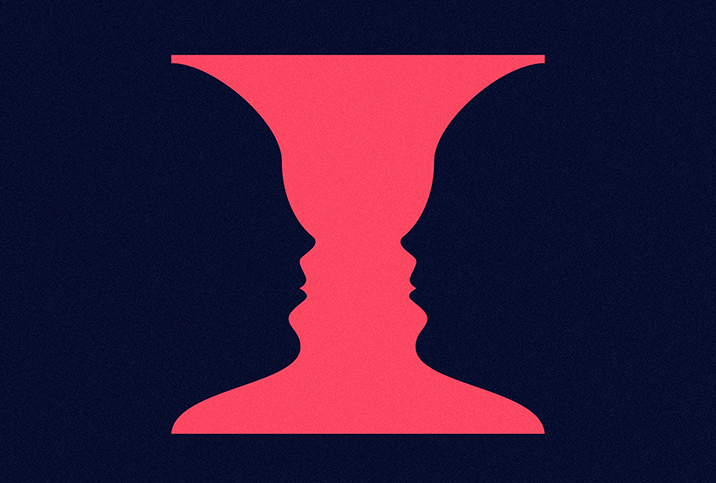How to Make Your Open Relationship Work

If you've ever tried to be in an open relationship, you know the whirlwind of unpleasant emotions it can stir up.
The gut-wrenching feeling when your partner tells you they had sex with someone else (even if you said it was OK). The gnawing feeling when they don't text back, wondering if they're on a date with someone better looking or more interesting than you. The guilt when you're hooking up with someone else and it feels like you're cheating.
But is the solution simply being monogamous?
Although it's been the default relationship model for eons, many people are lousy at it, as shown by how common infidelity is and how high the divorce numbers go. The American Psychological Association estimated that between 40 percent and 50 percent of 2022 marriages will fail, and that number only increases for second and third marriages.
Instead of cheating on their partner, folks these days are being open about their desire for ethical non-monogamy (ENM), with some even putting it in their dating profiles.
However, for many people, a relationship with one other person is hard enough. Opening up the relationship may seem insurmountable. Open relationships aren't easy—they require a lot of maturity, self-reflection and vulnerable conversations.
Below are some of the honest pros and cons of an open relationship, as told by a licensed mental health counselor (LMHC) who specializes in open relationships and a licensed marriage and family therapist (LMFT).
Pro: Your wants and needs can be fully met
Feeling like something is lacking, either in the physical or emotional sense, is one of the main drivers for opening up your relationship.
For example, couples in a long-distance relationship (LDR) who are separated for months at a time may have a "don't ask, don't tell" policy for getting their needs met. This can work, but you need to communicate about what those needs are and how others can meet them.
David Figueiredo, LMHC, who specializes in open relationships and non-monogamy in his practice located in Sleepy Hollow, New York, said he really tries to get clients to hone in on what they're looking for.
"What type of open relationship you want leads you down a path of what your boundaries are going to look like, what's OK and what's not OK," he said. "Open relationships that are purely sexual, consisting of meeting up and having casual sex with others, are going to look different than something like polyamory that also has an emotional component to it."
But if you're able to communicate and work out a mutual agreement, it can be a real game-changer for couples in LDRs or with mismatched libidos.
Con: Your relationship can lose its footing
Saba Harouni Lurie, LMFT and founder of Take Root Therapy in Los Angeles, said couples in a troubled relationship might try an open relationship thinking it will help—when it may result in the opposite.
"They may decide to open the relationship up without having really considered what it's going to look like for them, what their boundaries are going to be, what they need to make it work and then it can make things more difficult instead of easier," she said.
Not thinking through what it means to have an open relationship can lead to difficult conversations and emotions you may not have anticipated, such as hurt, regret and anger. Lurie said to reflect on these questions before you and your partner decide on an open relationship:
- Does the relationship feel like it's on solid footing?
- Do you feel deeply connected to your partner?
- Do you feel invested in continuing this relationship?
- Do you think the relationship is working?
- Why do you want to open your relationship?
Pro: You may feel compersion
One of the feelings that doesn't get talked about much is compersion—the opposite of jealousy. Simply put, it's a feeling of pleasure knowing your partner is feeling pleasure.
"It can feel good knowing your partner is having other relationships and receiving care elsewhere," Lurie said.
If this sounds far-fetched to you, you're not alone. We've been conditioned to look at monogamy as the default format for relationships, so compersion doesn't come naturally to everyone. Butwith an attitude of openness and exploration, it is possible.
Figueiredo said some people may feel sexually turned on knowing their partner is going on dates and having sexual encounters without them. If this is you, explain this to your partner and experiment with role play or act on this desire at swinger clubs.
Con: You may feel hurt and regret
We can't talk about open relationships without mentioning the "little green monster."
"Jealousy is natural," Figueiredo said. "Jealousy is going to come up. Even if you're not a generally jealous person, it will come up. You'll just get this overwhelming feeling of what's going on and feelings of being replaced."
While you may think it's good, in theory, that your partner is getting their sexual or emotional needs met elsewhere, coming to terms with that reality can be difficult. However, the key is talking through these feelings and being ready to take a step back.
Figueiredo said these conversations can be emotionally challenging.
"[Boundaries] are one of the things you always want to bring up at the beginning to be considerate of your partner's feelings," Figueiredo said. "Usually I'll say to people it's okay to tell your partner if you want to take a break or stop because this is becoming too much."
Pro: Your communication will increase tenfold
If you decide to try an open relationship, propositioning your partner will be the first of many conversations. Choose the right timing, like when things are going well, and be ready to explain your reasons for wanting to experiment with non-monogamy.
"There are people that will talk about an open relationship for years before actually doing something," Figueiredo said.
He described a few different stages. First, you may be curious about what it could look like, then you may fantasize about it and finally, you may put it into action.
Open, vulnerable conversations where you're fully open and honest with your feelings can actually deepen your connection with your partner. You'll get better at talking through emotionally taxing topics, such as why you felt jealous and what other feelings came up for you.
Open relationships are not a copout
One of the biggest misconceptions about people in open relationships is they just want to sleep with other people. In fact, open relationships can be a chance to have a non-monogamous but still committed relationship, hyperbolic as that may seem.
The key component to making it work is understanding why you want an ENM relationship in the first place. Identify what needs aren't being met currently, and communicate through the difficult emotions an open relationship will inevitably bring up.
Remember, this is still a relationship. That means each partner has a role to play. A loving and supportive role.




















